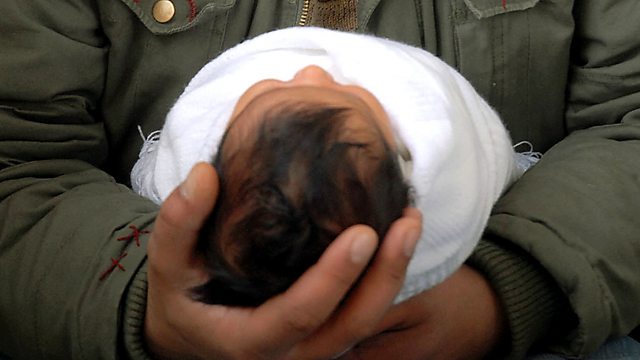Air pollution and child health
Winifred Robinson reports on one of the world's largest child health studies. She hears about important health findings emerging as those in the study settle into school.
The Born in Bradford researchers are determined that theirs should be an applied health research study with results leading to better services. "Everything we do gets translated into practice so that our work on congenital anomalies has led to a city register for these children and also a Yorkshire register," says Professor John Wright, the Director of the Bradford Institute for Health Research.
The tradition of marrying a cousin is becoming more entrenched among British-born Pakistanis living in Bradford than it was a generation ago. Cousin marriage has important implications for health because marrying a cousin increases the risks of passing on genetic disorders. Ruba, who married her second cousin, had two children with I-cell disease. Tragically both Hassam and Alishbah died and professionals working with couples like Ruba and her husband hope that in the future they will be able to provide better genetic screening and advice.
"It was a real shock to me when he was diagnosed," she says, "I didn't even know what it was, we've nearly all been married to cousins in our family and we didn't know this condition existed."
Born in Bradford was launched in 2007 - one of the world's largest longitudinal studies with 13,500 babies and their mothers agreeing to be followed. The impetus for research came from high infant mortality rates - double the national average - and so far the data has resulted in changes including universal testing for gestational diabetes and greater counselling about conditions associated with cousin marriages. About 39 per cent of mothers in the study are of white British origin, and 46 per cent are from Pakistan, providing a fascinating insight into a new multi-ethnic generation
With those babies having reached school age there's greater attention on research projects examining how they fare. In 2012 researchers began testing hand and eye co-ordination, vocabulary and letter recognition with all the children in the reception classes of 88 primary schools. They also worked with school nurses to measure cardiovascular health and in this programme they examine other factors influencing health, including air pollution, exercise levels and diet.
Winifred follows some of the Bradford youngsters given air pollution monitoring back packs as they go about their daily lives. These are equipped with ultra violet analysis and I-phones that track their route to and from school and link exposure levels through local pollution monitoring units. The backpacks sit next to the youngsters during class and even give an indication of exposure during play times, for example. Those taking part give samples which are being monitored and assessed when variables, like the school route, are changed.
There are also the new stand sit desks - something all of us might be hearing more about given concerns about our more sedentary lifestyles. At one Bradford school pupils are trialling desks which can be raised and lowered, giving youngsters some movement during lessons. Wearing activity monitors the benefits can be judged in terms of increased metabolic rates as well whether they improve concentration levels. Medical research suggests constant sitting is harming health - stand sit desks might provide a solution that extends beyond.
Last on
More episodes
Broadcast
- Fri 16 May 2014 11:00Βι¶ΉΤΌΕΔ Radio 4

